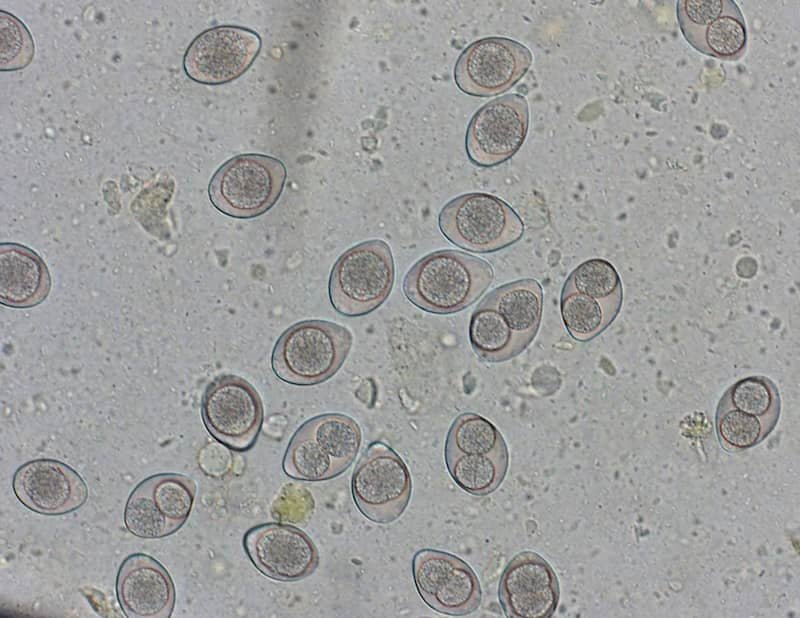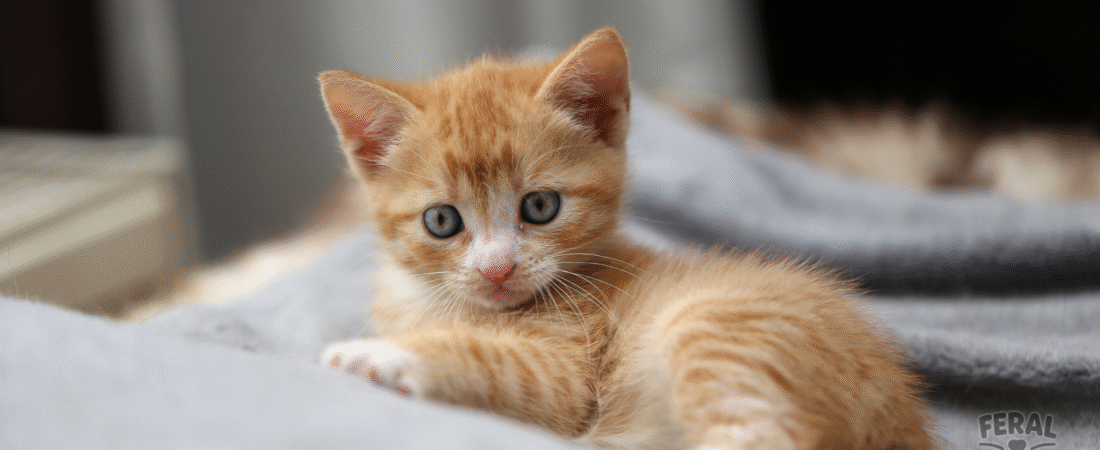📌 What is Coccidia in Cats?

Coccidia are microscopic protozoan parasites that live in the lining of a cat’s intestines. The most common species in cats is Isospora felis.
- How it harms cats: Coccidia invade and damage the intestinal cells, leading to diarrhea and poor nutrient absorption.
- Who’s most at risk: Kittens, stressed cats, shelter cats, or those living in crowded conditions are most affected.
- Why it matters: Heavy infections can cause dehydration, malnutrition, and even death in severely weakened kittens.
🦠 How Do Cats Get Coccidia?
- Ingesting contaminated feces or soil: Oocysts (eggs) are shed in stool and can survive weeks in the environment.
- From hunting prey: Mice and rodents can carry infective oocysts.
- Shared litter boxes or crowded spaces: Multi‑cat homes and shelters are high‑risk.
- Unsanitary conditions: Dirty litter trays, wet bedding, or contaminated water allow cysts to thrive.
🚨 Symptoms of Coccidia in Cats
Symptoms vary from mild to severe depending on age and immune strength:
- Diarrhea: Often watery, sometimes with mucus or blood.
- Dehydration: As diarrhea continues, cats lose fluids rapidly.
- Weight loss and poor appetite: Due to nutrient malabsorption.
- Abdominal pain / bloating.
- Vomiting (less common).
- Kittens: Can decline rapidly, becoming weak, dehydrated, and underweight.
- Adults: May show no signs but shed infective oocysts.
🔍 Diagnosis
- Fecal flotation microscopy: Detects oocysts in stool.
- Repeat fecal exams: Necessary because oocyst shedding is inconsistent.
- PCR tests (advanced): Can confirm diagnosis if routine microscopy is inconclusive.
💊 Veterinary Treatment for Coccidia
Unlike worms, coccidia require antiprotozoal drugs:
- Sulfadimethoxine (Albon®): The most common prescription; reduces oocyst shedding and diarrhea.
- Toltrazuril or Ponazuril: Effective alternatives widely used in shelters and rescues.
- Supportive care: Fluids, electrolytes, and probiotics to restore gut balance.
- Re-dosing: May be required if reinfection occurs.
⚠️ OTC wormers do not treat coccidia. Cats need specific protozoal medications.
🌿 Holistic & Kitchen Supports for Cats with Coccidia
Coccidia cannot be cured naturally—meds are required. But holistic supports help soothe the gut, reduce inflammation, and restore health:
🎃 Pumpkin (Puree or Ground Seeds)
- Pumpkin fiber helps firm stool and soothe intestines.
🥥 Coconut Oil (Unsweetened)
- Contains medium chain fatty acids (MCFAs) with antiparasitic potential.
- Use: ⅛ tsp for adult cats a few times/week.
🌱 Slippery Elm Bark Powder
- Coats and soothes the intestinal lining, easing inflammation from diarrhea.
🧉 Probiotics (Pet-specific or Goat Kefir in tiny amounts)
- Restore healthy gut flora after infection and antibiotic use.
🍎 Apple Cider Vinegar (ACV)
- Tiny drops can enhance digestion, but introduce cautiously (strong taste disliked by cats).
🏡 Environmental & Home Hygiene
Coccidia oocysts are tough, sticky, and resistant. Breaking the cycle requires diligent sanitation:
- Scoop litter boxes at least 2x daily.
- Disinfect boxes & surfaces with boiling water, steam, or ammonia solution. (Bleach is less effective unless at high concentrations).
- Wash bedding, toys, and bowls weekly in hot water.
- Keep living areas dry and sunny—oocysts survive longer in moist environments.
- Isolate infected kittens/cats during treatment in multi‑cat households.
🛡️ Prevention
- Good litter hygiene: Daily scooping and regular disinfecting.
- Clean water and food bowls daily.
- Prevent hunting: Mice and other prey can carry parasites.
- Reduce overcrowding: High cat density = higher infection risk.
- Routine fecal tests: Especially for kittens or cats adopted from shelters.
🌱 Quality of Life
- With prompt care, most cats recover fully from coccidia.
- Kittens may need extra nutritional support, fluids, and probiotics.
- Reinfections are common—cleaning the environment is just as important as treating the cat.
❓ FAQs
Q1: Can humans get coccidia from cats?
No. The species of coccidia in cats (Isospora) does not infect humans.
Q2: My adult cat looks healthy—can it still carry coccidia?
Yes. Adult cats may shed oocysts with no symptoms, infecting kittens or other cats.
Q3: Does pumpkin cure coccidia?
No. Pumpkin soothes the gut but doesn’t kill protozoa. Veterinary drugs are needed.
Q4: Why do kittens get sicker than adult cats?
Their immune systems are still developing, and they’re more vulnerable to dehydration and malnutrition.
💡 Final Thoughts
Coccidia is common in kittens and shelters, but with early treatment and strong hygiene practices, it can be managed and eliminated. The winning strategy is:
- Veterinary drugs to kill protozoa.
- Holistic gut supports like pumpkin, probiotics, slippery elm to ease recovery.
- Environmental cleaning to stop reinfection cycles.
✅ Key takeaway: Meds treat the parasite, but holistic care + hygiene protect long term health.

